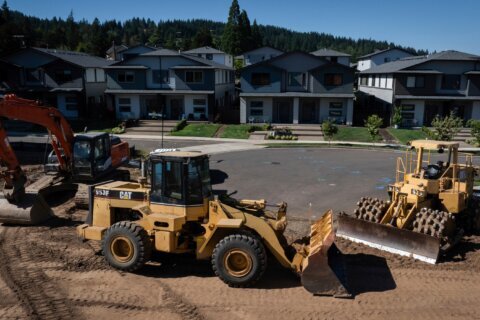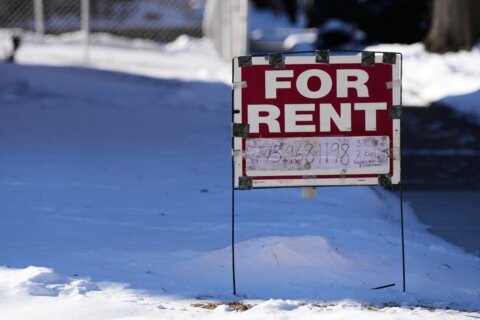As you schlep your ski gear to your favorite resort for the umpteenth time or search for lodging near your favorite beach on a holiday weekend, you may think how much easier life would be if you had your own vacation home.
An estimated 1.13 million vacation homes were sold in the U.S. last year, the highest number since the National Association of Realtors began collecting the data in 2003. And vacation home sales made up 21 percent of residential transactions in 2014.
While owning a vacation home can make logistical and financial sense, it’s not a decision to be entered into lightly.
“For some people, it’s not a matter of dollars and cents,” says Marian Schaffer, president and founder of SoutheastDiscovery.com, which publishes information on retirement and vacation home communities in the Southeast. “It’s a matter of experience.”
For most people, money will play a big role in the decision. Baby boomers who have sold their family homes for cash may choose to invest some of that cash in a winter home in a warm climate or other future retirement destination, says Valerie Dolenga, a spokeswoman for Del Webb, which builds active-adult communities throughout the U.S. In those cases, homeowners don’t rent out their properties but move from one home to another, perhaps spending winters in a second home in Florida or Arizona and summers up North near family.
Others may buy a vacation home with the idea of renting it out when they’re not using it to defray at least some of the costs. Some may only be able to afford a vacation home if they rent it out when they’re not using it.
Rob Stephens and his family bought a three-bedroom condo in Vail, Colorado, in 1999 with rental income in mind. “Having a getaway place in the mountains was a motivator,” Stephens says. “When I started, I really needed that rent to make my mortgage payment.”
“To us, owning real estate in Vail long term is a good investment,” says Stephens, general manager of Avalara MyLodgeTax, which helps owners comply with local lodging tax laws.
If you want the rental income, it’s important to choose a home that can be rented at the frequency you need to cover expenses. That means both choosing a community that allows vacation rentals and then making sure you’re set up to take advantage of the rental potential, from furnishing the unit to having a plan for advertising and handling tenants. You need to know before you buy whether you will rent the home when you’re not using it.
Here are 10 things to consider when looking at vacation homes:
Can you afford it? Real estate is not a liquid investment, and you can’t count on being able to sell a home for a profit, or even break even, especially in your first few years of ownership. During the recession, homes lost more than half their value in Florida, Arizona and Nevada, among other places.
Know all the rules. Not all homes can be used as rental property. Homeowner or condo associations may set rules for rentals, as may cities. Some resorts may require you to use their programs, which set standards for interior furnishings and amenities, but the property handles the logistics for a percentage of the rent. If you plan to rent out your property, it’s especially important to research all these rules before you buy.
Calculate all the costs. The actual purchase price is only part of what you will need to spend. You will also have to pay utilities, HOA or condo fees, property taxes, insurance and the cost of furnishing a new home down to the spoons and forks. If you’re in a resort area, you may also need or want skis, snowboards, kayaks, water toys or other gear.
Be realistic in your expectations of rental income. Renting out a vacation home comes with expenses. You will need to pay for cleaning between tenants, advertising and perhaps property management. If you’re part of a resort rental program, it will take a percentage.
Know how often you will really visit. If you don’t rent out your unit, you want to make sure you will visit enough to make the purchase worthwhile. Pick a place you love and want to return to often, advises Dolenga. You don’t want your home to sit unoccupied for long periods.
Have a plan for emergencies. If you don’t visit the house often, make sure someone does. A water leak can be devastating. If you’re renting, repairs need to be made quickly, so get to know a good handyman or property manager. If there is a hurricane, you may need someone to put up shutters before the storm and remove them afterward and secure the home if it suffers damage.
Protect your home when it’s vacant. Vacant homes attract thieves. Take steps to keep your home from looking empty. Consider lights on timers or asking neighbors to occasionally park in your driveway. Make sure someone picks up mail and fliers so its not obvious no one is home.
Have a rental business plan. Will you go into a rental program, hire a management company or do it yourself via services such as Airbnb or VRBO? If you’re handling your own advertising, you will need great photos. You also need to be able to take payments from tenants (services like PayPal or Stripe typically work well) and have a way for them to get in (Stephens uses a keyless entry system with codes). A reliable cleaning service is essential, especially when you have only a few hours between tenants.
Calculate your return on investment. If owning a vacation home is part of your overall investment strategy, make sure it’s a good move. Estimate returns and weigh them against other uses of the same money.
Expect to pay taxes. Rental income is taxable on state and federal returns, though most vacation homeowners won’t earn enough after expenses to face a significant tax liability. If you are doing short-term rentals, usually of less than six months, your state and county consider you an innkeeper and expect you to collect the same lodging taxes that hotels collect and pay those to the appropriate authorities. “If you’re renting a home, an apartment, a room, you’re basically running a mini-hotel,” Stephens says, with the rules varying by state and county. In Fort Lauderdale, Florida, for example, a tax of 11 percent is due, 6 percent to the state and 5 percent to the county, he says.
More from U.S. News
10 Ways Millennials Are Changing Homebuying
10 Places to Buy a Retirement Home for Under $150,000
8 Strategies for Investing in Real Estate
10 Things to Consider Before Buying a Vacation Home originally appeared on usnews.com







